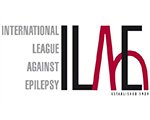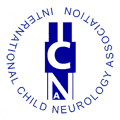Meningitis
Meningitis is the inflammation of the membranous tissue (meninges) covering the brain and the spinal cord. While some cases of meningitis may improve without any therapy, others may require emergent treatment.
Causes
Meningitis may be caused by viral, bacterial, and rarely fungal infections. Non-infectious causes include drug allergies, inflammatory conditions, and some types of cancer. Young children are more at risk of developing this condition. Other risk factors include not following the recommended vaccination schedule, living in a group setting like a dormitory or boarding school, pregnancy and having a compromised immune system.
Impact
The impact caused by meningitis varies depending on the severity of symptoms. Although most patients tend to make a good recovery, some patients may be left with disabling after-effects that make a huge impact on their lives.
Symptoms
In newborn children and infants, signs and symptoms of meningitis may include high fever, excessive irritability, sluggishness, poor feeding, stiffness, and bulging of the soft area on the top of the baby’s head. Older children and adults may experience high fever, headache, sensitivity to light, neck stiffness, body ache, seizures, skin rash, nausea and vomiting, confusion, drowsiness, and loss of appetite.
Stages
The initial infection may result in symptoms within a few days, but in case of slow-growing organisms, manifestation of symptoms may take up to a month. Following treatment, relief of symptoms may begin in 2-3 days with complete recovery within a few weeks. In case of severe disease, some neurological impairment may continue for months or even longer.
Diagnosis
A diagnosis of meningitis may be suspected based on symptoms as well as a physical examination and confirmed by diagnostic tests which include blood cultures, imaging studies (X-rays, CT and MRI scanning), and a spinal tap to evaluate cerebrospinal fluid.
Untreated
Delay in treatment increases the risk of seizures or permanent neurological damage which could be in the form of hearing loss, poor memory, learning disability, gait problems, kidney failure, shock, and death.
Treatment-options
The treatment would depend on the cause of the meningitis:
- Bacterial Meningitis: Intravenous antibiotics and corticosteroids help to fight the infection and reduce the inflammation. Infected sinuses may have to be drained.
- Viral Meningitis: The main stay of treatment is bed rest, plenty of fluids, and medication to reduce fever and relieve body aches.
- Fungal Meningitis: If a fungal aetiology is confirmed on laboratory tests, then anti-fungal medications will be given as well as symptomatic treatment.
- Non-infectious Meningitis: Steroids are given to control the inflammation of the meninges and the patient will receive symptomatic treatment until the condition resolves.








